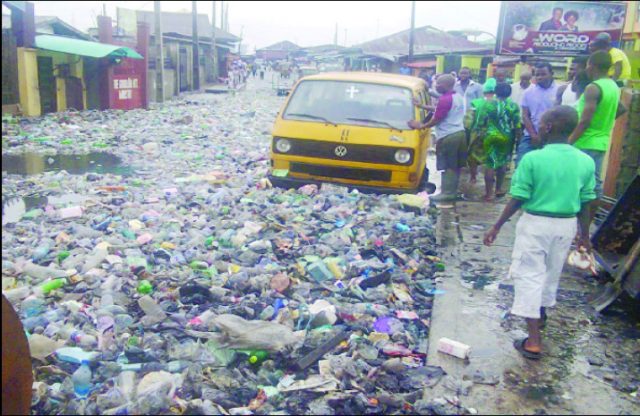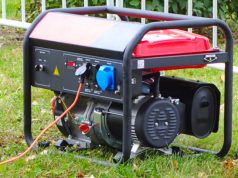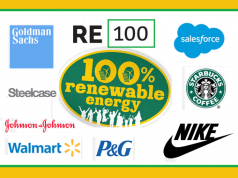Burden or Blessing: Re-examining the Waste Situation in Lagos (Part I)
*Ayodele Babalola
Introduction
An estimated 11.2 billion tons of solid waste is collected annually worldwide and the decay of its organic proportion is contributing about 5 percent of global greenhouse gas (GHG) emissions. With the increase in global population and economic activities, waste generation continues to escalate. This could pose serious threats to human health and the ecosystem if not properly managed. Waste management includes the entire chain of minimization, collection, disposal, recycling and in some cases, power generation. Poor waste collection and disposal system in any city will inevitably lead to air, water and land pollution.
The Lagos Story
Lagos, a coastal state in Nigeria has a population of over 21 Million people. Lagos generates over 13,000 tons of waste everyday which is about 1.2kg per person, with an expected increase to 1.42 kg in the next 15 years. There are worrying signs about collection and disposal rates in Lagos which is pegged at less than 50%. There are also concerns about how effective the existing collection and disposal system is. With the recent Goldman Sachs Report which cited Lagos as one of three cities susceptible to serious flooding and sea rise, it has become pertinent to revisit the waste management system in Lagos. Waste generation could be a burden or blessing to any city depending on how effective its management system is. This piece suggests ways to redesign present waste management systems in Lagos to ensure preservation of public health, environmental justice and sustainable development.
Present Waste Management Structure and Recent Developments in Lagos
Waste in Lagos is managed/regulated by the Lagos Waste Management Authority (LAWMA). Measures are in place to upscale the services of over three thousand Private Sector Participants (PSPs) for evacuation of household waste on a weekly basis. There are a few dumpsites in Lagos including Olusosun, the largest dumpsite in Nigeria. Olusosun, which is about 42.7 hectares, receives about 2.1 million tons of waste annually comprising mostly of solid waste, construction waste and e-waste. Olusosun receives approximately 40 percent of the total waste deposit from Lagos. Other dumpsites include Solous 2, Solous 3, Temu (Epe), Ewu (Elepe), Simpson, Agege and Oshodi. LAWMA has operational districts covering the whole of Lagos.
On the recycling end, the Blue Box Program (BBP) was recently launched by the Lagos state government. The BBP is a recycling initiative to encourage sorting of waste from source. Through assigned recyclers and volunteers, LAWMA is to distribute bags to waste generators be used to collect and store cans, bottles, plastics and papers at the point of generation. Recyclers assigned to each particular area are to pick up the color coded bags every Saturday for onward transportation to Community Recycling Centres for sorting and processing.
A Few Areas worth Considering:
Culture of Waste Minimization
A significant percentage of waste generated in Lagos and all over Nigeria can be avoided. It is advisable for waste to be minimized as much as possible. LAWMA in collaboration with the PSPs and Recyclers should embark on orientation programs on waste minimization. For example, a lot of paper waste is being generated by individuals, party people, schools, hotels, business organizations and government institutions for advertisements and/or program of events. Those paper bulletins are usually not useful to the target market/attendees after the events. The above stated organizations should make more use of emails for invitations and digital displays for programs. This will go a long way in minimizing paper waste in Lagos. With respect to political posters, LAWMA, Lagos State Independent Electoral Commission (LSIEC) and Lagos State Signage and Advertisement Agency (LSSAA) should explore the possibility of establishing designated/centralized places for campaigns. These places will be the only approved spots for pasting of political posters and other campaign activities. This should discourage indiscriminate pasting of political posters all over the state and ultimately minimize paper waste from political activities. It should also make it easier for clean up after election seasons. Hopefully, this structure will also be considered at INEC level.
Residents should also be encouraged to use items for longer periods. For example, paper bags should be used sparingly. In some parts of the world, paper bags are sold to customers. However in Nigeria, they are given to customers for free once an item is purchased. This explains why a lot of paper bag waste is generated. Paper bag use can be minimized if business owners put a price on them. This will go a long way in reducing paper bag waste in Lagos and in encouraging residents to sparingly make use of paper bags.
Setting standards for collection and transportation
I have aborted several evening runs because of the unbearable stench emanating from the collection and transportation of waste. There should be a regulation that sets standards to ensure that collection and transportation of waste complies with current industry best practices that ensure environmental friendliness and public health. This problem is also linked with how the waste is packed by the generator. Regulators should monitor the collection and transportation trucks to ensure that they are operated in such a way that they do not constitute mobile emission hazards.
Re-Examining the Blue Box Program
Recycling leads to substantial resource savings. The sector is rapidly growing in Lagos and has created a lot of jobs. The Blue Box Program (BBP) which was recently launched by the Lagos state government is a recycling initiative aimed at encouraging sorting of waste from source. Two colour coded bags would be distributed to households by franchised recyclers and environmental volunteer corps. The blue bag will be for recyclable waste items like plastic, water sachets, cans, bottles and papers while the black bag will be for general non-recyclable waste. Recyclers assigned to each particular area are to pick up the blue bags every Saturday for onward transportation to Community Recycling Centres (CRCs) for sorting and processing. The BBP is projected to generate over 46,000 direct and indirect jobs for Lagosians.
Rather than bags being distributed to household waste generators for recyclable waste, containers will be more productive in the long run. From the effectiveness standpoint, the bags could tear easily and are also not easy to carry (no handle support). From the economic standpoint, the bags will cost more in the long run due to the frequency at which they will need to be distributed. From the environmental standpoint, the bags will form part of the waste problem. Imagine having to distribute these bags frequently to the entire households in Lagos which is of course the plan. For the non-recyclable waste, the paper bags may be needed in addition to the containers.
*Ayodele Babalola is qualified to practice law in Nigeria and has an LL.M (Master of Laws) with specialization in Environmental & Energy Law and Public Law from the University of California, Berkeley. He is the Founding Partner, AOB Willows LP where he leads the Dispute Resolution, Environment & Elections Practice





pls sir, is their any job vacancy in your company
None at the moment Emmanuel. Thanks.